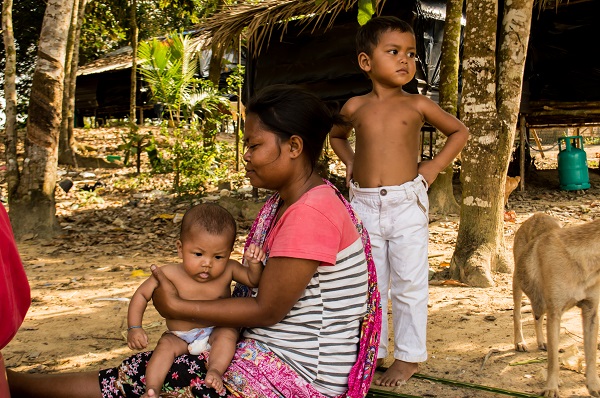Around 4-hour drive from Kuala Lumpur, sits a peaceful village called Kampung Binjai. When we first arrived, the children were running around naked, playing in the dirt. The houses were all made from leaves and wooden planks, surrounded mostly by rubber trees.
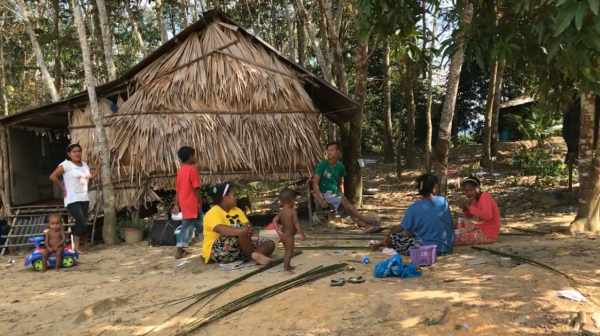
The daily routine of the villagers of Kampung Binjai.
Kampung Binjai in Pahang is one of the many villages in Malaysia which were displaced by logging activities. There is no running water from hills in their new settlement and they were reliant on unprotected self-dug wells and ponds. These villages are usually small (approximately 100 – 200 residents) and scattered, which become encumbering for the government to keep track and provide for all the villages.
According to UNICEF (2015), 1 in every 3 people lack improved sanitation and 159 million people around the world still rely on surface water (e.g. Rivers, lakes, ponds) for their survival. Most of the urban population in Malaysia are not aware that water poverty is still prevalent in Malaysia, especially among the indigenous communities in remote areas.
Upon learning about the situation in Kampung Binjai in 2016, Global Peace Foundation installed a water filtration system for the community sponsored by Laneige Malaysia. In April 2017, we decided to visit Kampung Binjai one more time to follow up on their living conditions.
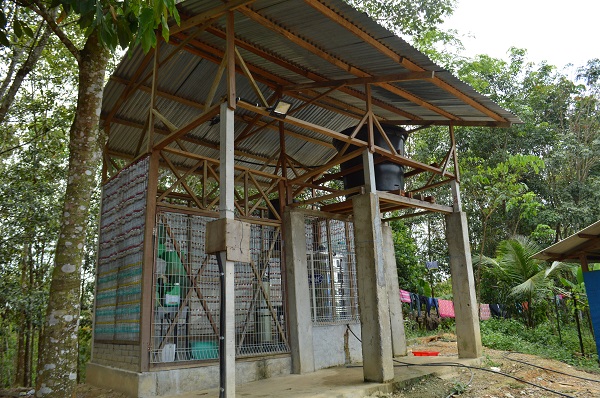
Water filter system installed last year with Laneige in Kampung Binjai.
We were pleasantly surprised to see the water filter in great condition and that the villagers have been using the filtered water for all the drinking and cooking. However, Endang, the villager taking care of the water filter, brought up an issue that plagued the children as young as 2 years-old of Kampung Binjai: skin disease. He pointed to us some kids who were having more severe skin problems. They mostly had huge patches of scabs that were either freshly formed or peeling off.
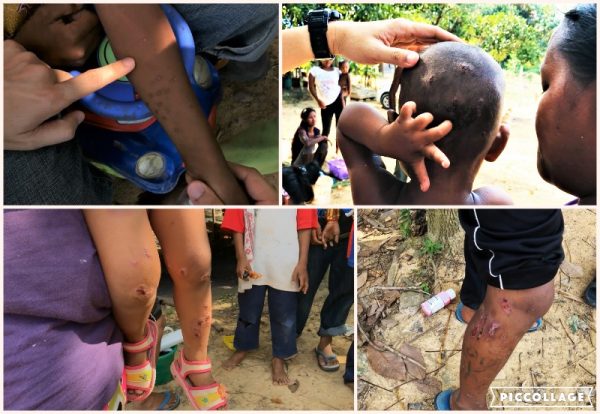
Wounds caused by skin diseases on children.
After speaking to the villagers, it seemed that the children had possibly contracted the skin infections from the polluted pond they bathed in daily. Most of the children experienced itches after bathing in the pond, which caused them to scratch and wound themselves. That is when we were reminded that the impact of water poverty is so much more than just the lack of clean drinking water. Water poverty also includes the lack of clean water to shower and to wash, and awareness of the importance of clean water as well.
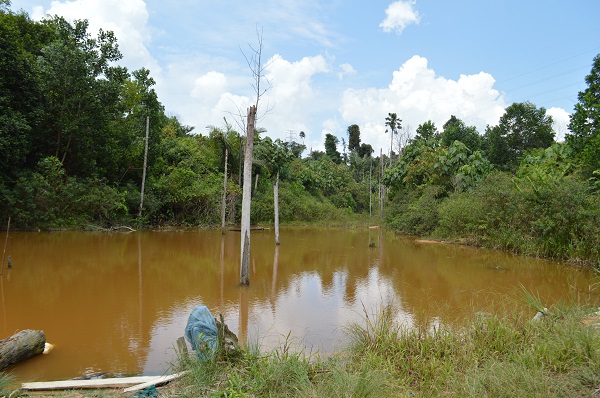
The pond which the children bathe in daily.
Fortunately, there is a water filter ready to be used and we advised the parents of the children to bathe them with the filtered water as well.
When we went back to Kampung Binjai two weeks later to check up on the children, the children were running around naked and playing in the dirt as usual. We brought along some antiseptic and antibiotic cream for them but were amazed by how well the children recovered just by bathing with clean water. The villagers told us their parents made sure they showered with clean water even though the children loved playing in the river. We laughed and told them, the children can play in the muddy river as long as their wounds are completely recovered and they wash themselves clean after playing.
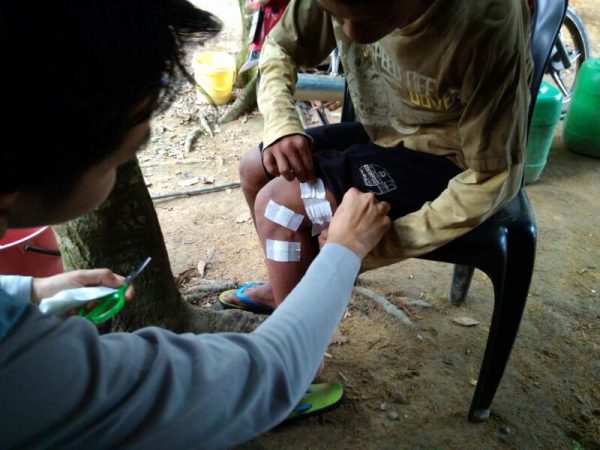
Dr Teh, CEO of Global Peace Malaysia, teaching a boy to treat his wounds himself.
It was a true reminder of the significance of clean water. We left Kampung Binjai after teaching them how to use the medicines, knowing that the villagers are making serious efforts to improve the state of their water hygiene.
Now, on to our next Kampung!

